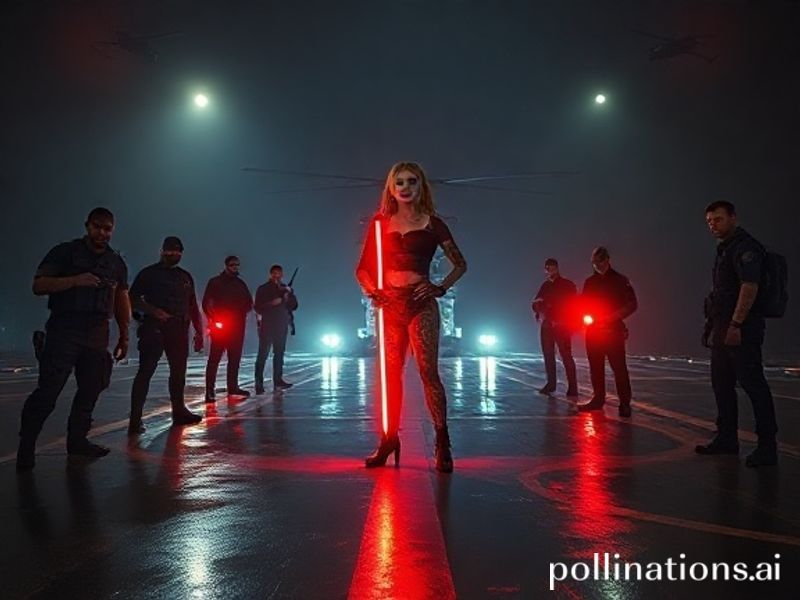Global Suicide Squad: When Every Nation Outsources Its Dirty Work in Technicolor
Suicide Squad, or “Task Force X” if you prefer the sanitized UN-style branding, has always been less a story about super-villains and more a mirror held up to the global habit of outsourcing dirty work. From Washington to Warsaw, from Lagos to Lahore, governments have discovered that the most efficient way to dodge accountability is to hire people already presumed disposable. The Squad is simply that concept in spandex—an IMF bailout with more eyeliner and explosives.
Internationally, the franchise’s newest cinematic outing arrives at the precise moment when “plausible deniability” is enjoying a bull market. Mercenary outfits like the Wagner Group, private intel shops in the Gulf, and even well-connected security consultancies in Knightsbridge all offer the same value proposition as Amanda Waller’s conscripted capes: if the op goes sideways, the paperwork shows the perpetrators were never officially on anyone’s payroll. That the Squad’s bomb-in-the-neck HR policy feels almost quaint compared to real-world black-site NDAs tells you everything about late-stage geopolitics.
Box-office trackers in Seoul note that South Korean audiences laugh loudest at every scene in which American officials insist they’re “restoring order.” The gag lands because Seoul—like Kiev, Taipei, and every capital stuck between superpowers—has watched Washington subcontract risk to allies for decades. One exec at a major streaming platform told me, off the record and between soju shots, “We root for Harley Quinn because we already have a bomb strapped to our economy.” Dark, yes, but so is buying LNG on the spot market at 3 a.m.
Meanwhile, India’s Central Board of Film Certification trimmed fourteen seconds of gore, presumably to protect viewers who otherwise spend their evenings doom-scrolling WhatsApp videos of actual lynchings. The irony was not lost on Mumbai film students who promptly pirated the uncut version and live-tweeted it as “a masterclass in comparative violence studies.” Their thread trended at #1, right above a promoted post for bulletproof schoolbags.
In Brazil, local distributors leaned hard into the film’s carnival-of-carnage aesthetic, timing the release with pre-Carnival festivities. Rio’s funk parties now blast the soundtrack between baile sets; nothing says “saudade” quite like a dubstep remix of exploding helicopters. Over caipirinhas, one diplomat confessed he envies the Squad’s clarity: “At least their bombs have countdown timers. Ours are demographic.” He gestured toward the hillside favelas glowing under a police chopper’s searchlight—another unofficial task force, no neck-bombs required.
The EU’s Parliament briefly debated whether the film’s glorification of extrajudicial teams undermines the bloc’s new “values-based defense” pitch. The session ended when a Swedish delegate pointed out that the EU’s own border agency has been caught chartering planes to move asylum seekers to Rwanda. The room went so quiet you could hear the ethics committee drafting its resignation letter.
All of which explains why Suicide Squad is less escapism than documentary cosplay. We watch a clown with a baseball bat mow down faceless enemies because it’s easier than watching a drone feed from the Sahel do the same. We cheer when Bloodsport bargains for his daughter’s future because deep down we know every migrant washing up on Lampedusa is making the same deal without the cool helmet.
The credits roll, the hashtags fade, and the planet’s real task forces—call them X, Y, or Z—keep cashing checks drawn on our collective moral overdraft. In that sense the film’s greatest trick isn’t making villains heroic; it’s convincing us that somewhere, somehow, the detonator is in someone else’s hands. Spoiler: it’s not. The red button is global, thumb hovering, and the only thing more explosive than the payload is our shared appetite for not looking too closely at who’s pushing it.







